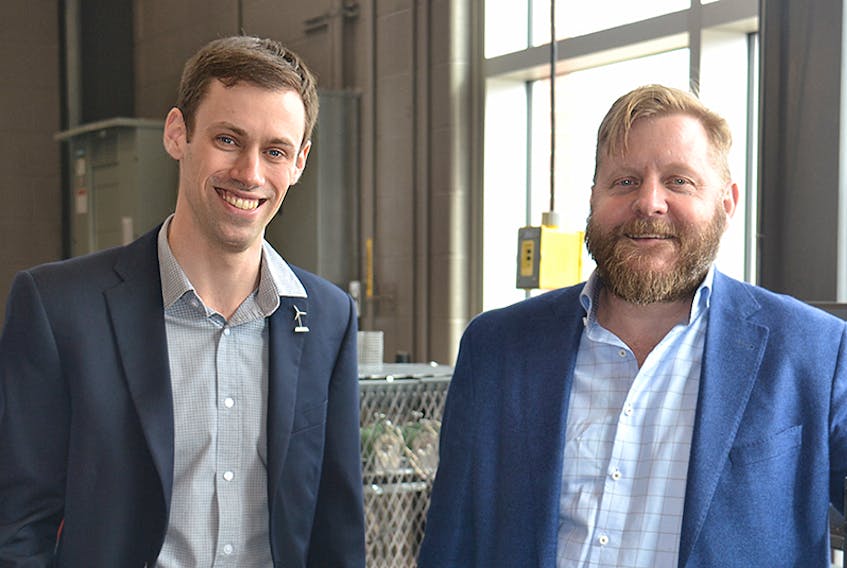Prince Edward Island’s energy system is one step closer to becoming 100 per cent carbon-free, thanks to a federal grant.
Researchers Matthew Hall and Andrew Swingler from UPEI’s School of Sustainable Design Engineering were granted $150,000 to develop a detailed framework for the Island’s electrical system, to increase its renewable energy integration and decrease its reliance on fossil fuels.
The grant, which was awarded from Mitacs, a non-profit, national research organization that provides student fellowships, in partnership with the P.E.I. Energy Corporation. It will allow the researchers to hire three students to work on the three-year project.
Swingler, an associate professor, said they are looking at pathways for decarbonizing P.E.I.’s energy system.
“In laymen’s terms, essentially moving P.EI. to wind and solar (energy),” he said, adding that moving towards a carbon-free energy system will also require effective energy storage and/or moving loads around (encouraging people to use power at different times) to better match the availability of renewable energy.
Hall and Swingler will also be looking at new technologies, such as the impact of electric vehicles and buses on the electricity load.
Hall, who is an assistant professor at the school, said the Island is a good place for this type of project because it already has a “significant amount” of renewably generated energy in the form of wind energy.
However, while there is a lot of wind when it blows, when it doesn’t there’s no power, so in order to account for wind intermittencies, the Island imports energy from New Brunswick, which “has everything from nuclear to coal”, Hall said.
“We don’t have, overall, a very clean electricity supply, even though we have so much wind, because we’re relying on imports as well.”
The project will construct a simulation-model tool that will assess the demand response and energy storage potential on the Island.
“We have a really unique opportunity here, because we already have a huge start on the wind side,” Hall said. “We’re a relatively small place and people are very pro-renewable energy on P.E.I. In this political climate, it’s a big opportunity for P.E.I to be a carbon-neutral province as far as energy concerns go.”
Interested candidates with an undergraduate degree in engineering and experience in energy modelling and energy systems can contact the school.









